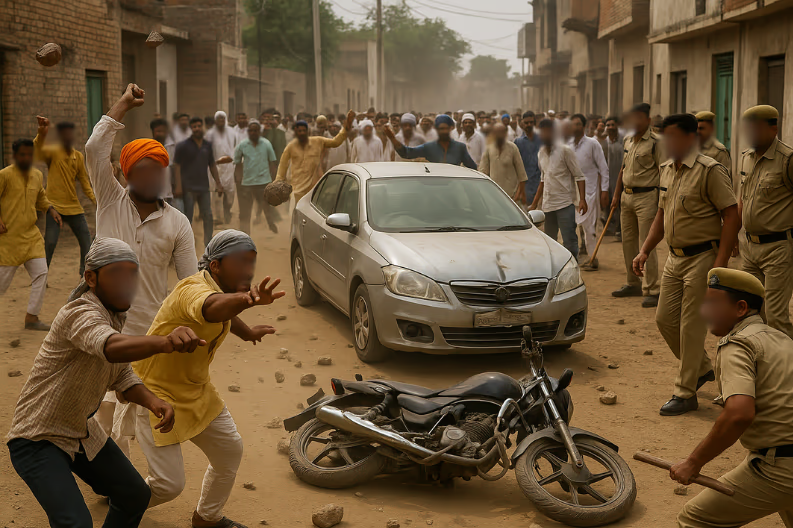Tensions rise in Ghaziabad Village after a bike-car accident triggered caste-based violence in Masola. The clash began when a Dalit man crashed his bike into a car driven by an upper-caste individual on September 6. After the accident, the car’s occupants slapped the Dalit man, sparking anger. When the man and his mother went to complain, they were allegedly taken hostage and beaten, worsening tensions.
On September 10, leaders of the Bhim Army visited the village to support the Dalit family. Their arrival inflamed emotions, and soon, groups clashed violently. Stones were thrown, and videos of the incident revealed chaos and anger in the community.
Residents accused the police of reacting too slowly, claiming that delayed action allowed violence to escalate. However, senior officers insisted they reached the spot quickly and restored order. Police are now reviewing CCTV footage to identify the culprits and have already arrested six people.
This clash reflects deeper issues in Uttar Pradesh, where caste discrimination continues to shape daily life. Dalits, long marginalized, often face hostility from upper castes. Such incidents expose how fragile relations remain in many villages.
Beyond the immediate violence, fear and distrust have gripped residents, leaving them anxious about future interactions. The episode has also raised questions about law enforcement’s ability to prevent caste-based clashes and protect vulnerable groups.
Authorities are keeping a close watch on Masola. Community leaders are calling for calm, urging residents to settle disputes peacefully. Police stress that legal action will continue, but experts emphasize the need for awareness campaigns and dialogue to bridge divides.
However, the clash in Ghaziabad is a reminder that deep-rooted caste divisions can easily erupt into violence. Building respect, ensuring justice, and encouraging peaceful coexistence are essential. Ultimately, Tensions rise in Ghaziabad Village highlights the urgent need for compassion, dialogue, and accountability to prevent such tragedies in the future.



